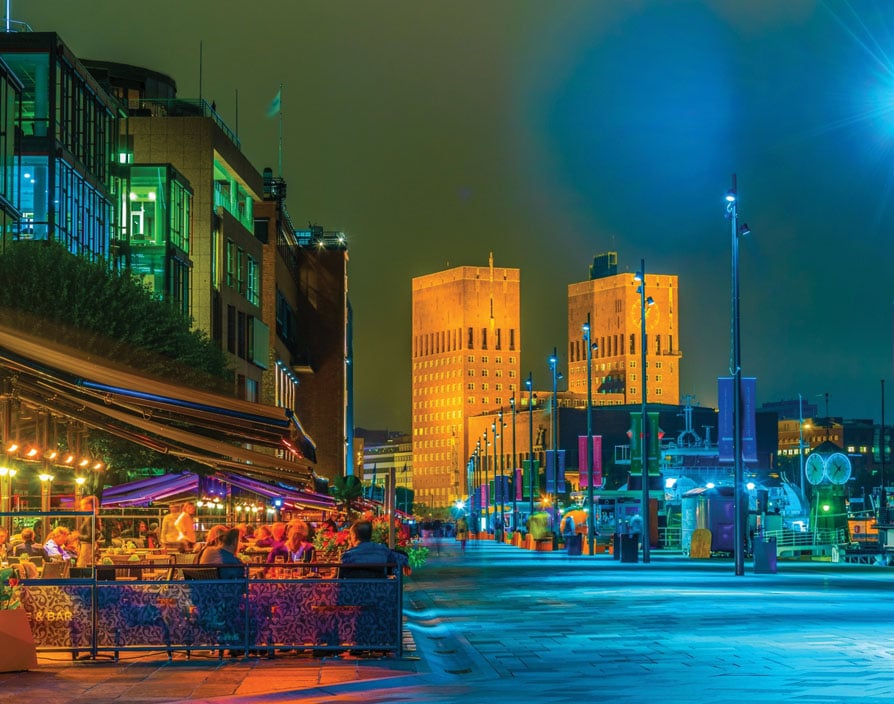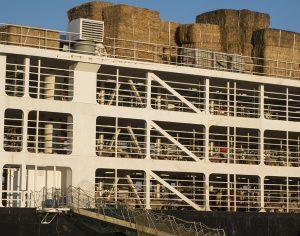It’s the oil, dummy. Ask anyone why Oslo’s startup scene only recently came into its own and they’ll tell you it’s because petroleum dominated Norway’s economy since it was first discovered in the late 1960s. While the natural resource buried at the bottom of the North Sea has consistently placed Norway among the top ten wealthiest countries in the world, it’s also restricted the country’s innovation capabilities. “The technology in Norway has basically been focused towards obtaining and abstracting oil and gas resources,” says Kjartan Rist, co-founder of Concentric, a VC firm. As a result, the idea of establishing an entrepreneurial hotbed in Oslo was put on the back-burner.
That doesn’t mean Norwegians didn’t launch any tech ventures in the past. “If we look at the 90s, we had several big IT companies here in Norway,” says Jørn Haanæs, startup director at Oslo Business Region, the city’s initiative to support the startup ecosystem. It’s from this era that you can track success stories like Opera Software, a tech company sold to a Chinese consortium for $600m in 2016.
In many ways, it wasn’t unlike the scenes in Denmark, Finland and Sweden where the period saw startups take their first steps into the world of IT. But the sector collapsed after the dotcom crash in 2000. That coincided with the world oil price jumping from $25 per barrel to almost $150 per barrel between 2000 and 2008. And in a population of just five million, it’s hardly surprising that most innovative minds bet on the safe and rich oil industry rather than going at it alone. “So we had a handicap for years,” says Haanæs. That’s why, while Stockholm has birthed startups like Spotify and Helsinki has hatched the Angry Birds creator Rovio Entertainment, Norway’s startup culture has been lagging behind. Until now.
Oslo’s transformation began with a crash. When the financial crisis kicked off in 2008 it caused the price of oil to plummet to $40 per barrel. It only recovered ever so slightly before falling again in 2014 to $28 per barrel, resulting in profits for the Norwegian industry to tumble too. “It was a blessing in disguise for Norway because it was a wake-up call to reduce our reliance on the oil and gas sector,” says Haanæs. Recognising the need to innovate, the whole country seemingly got behind the desire to help startups flourish among the fjords. Indeed, even the royal family has pitched in with Crown Prince Haakon opening the annual Startup Extreme festival in 2016. And it’s hardly a secret why the community has this backing. “We need new companies because we need new jobs,” says Haanæs. “This is a vital part of our economy.”
And Norway is putting its considerable coffers where its mouth is. “There’s tons of initiatives,” says Karen Dolva, CEO and co-founder of No Isolation, the startup creating tech to fight loneliness. “There’s tons of programmes, accelerators and incubators popping up.” Indeed, over the past decade the government has launched or supported initiatives like Innovation Norway, the organisation aiding startups, and Investinor, the Norwegian government-backed investment company, to help entrepreneurs realise their dreams. Moreover, the last few years have seen the launch of more than 50 incubators and accelerators as well as nearly 30 co-working spaces. And with each new initiative, the hurdle budding entrepreneurs face becomes slightly easier to overcome. “This is the new hype you want to be a part of,” she says. “And that’s cool.”
And it’s safe to say these efforts have already had an effect – investment in Oslo’s startups jumped from $24.7m in 2014 to $196.3m in 2016, representing the second biggest growth in the Nordics after Stockholm, according to Oslo Business Region. “If you have a good idea, a team assembled to do it and a way of attacking the problem then you’re probably going to get the money to try to figure that out,” says Haanæs. However, while the number of rounds worth over $10m have jumped from one to 11 in the period, most of the investment rounds are still targeted towards early stage startups. This means Oslo entrepreneurs must often move abroad to scale. For instance, that was the case for Unacast, the contextual and transparent location data platform, which relocated to New York when it raised its $17.5m series B round in February 2018. “That’s a problem for us,” says Haanæs.
But that isn’t the only reason for entrepreneurs to look abroad for their expansion plans. “We’re a very small market so just conquering the home market isn’t necessarily enough,” Dolva says. Indeed, with its small population, it’s hardly a secret why Oslo’s startups go abroad. “It’s just never going to be enough,” she says. “So, it forces you to go out fast, which is probably good. You kind of have to leave your own country which is maybe not the case if we were in the UK and had a large home market.”
However, while the British and Norwegian markets are different in many ways, both nations will soon be outside of the European Union. Despite the risks and benefits of Brexit still being debated in Blighty, Norwegian entrepreneurs’ opinions about being outside the union are clear. “It makes me super-angry to be Norwegian and to come from a country that doesn’t realise the value of being a part of the EU,” says Dolva. The way she explains it is that even though Norway is a member of the European Economic Area, No Isolation was still forced to open a daughter company in Amsterdam in order to trade with the rest of Europe and to avoid tariffs and extra admin. “Right now it’s easier for me to ship robots from our office in Amsterdam to Sweden than to ship it from Norway and that just doesn’t make sense to me,” she says.
In fact, Brexit has caused some worries among Norwegian entrepreneurs too. The reason is that because the country has such a limited talent pool, startups are no strangers to recruiting engineers from further afield. “We’d like people to move here and have kids,” says Axel Bentsen, CEO and co-founder of Urban Infrastructure Partner, the transportation sharing startup. Given Norwegians have the fourth highest English proficiency in Europe, it’s safe to say that the language barrier isn’t a problem for people wishing to come and work in Norway. Add to that a high quality of life, a generous welfare state and long parental leave for new parents, moving to the land of the midnight sun is a highly attractive alternative. But Brexit has made Norwegian startups worry about what the UK’s conscious uncoupling from the EU will mean for them with the UK and what will happen with their British employees. “We’re quite nervous about what is going to happen and how it’s going to be,” says Bentsen. “They have rights because we have close ties to the EU but if Brexit is complete, then what?”
While there are certainly challenges left for the emerging startup city, the people in Oslo are confident about its future. “We are now in an extremely intensive stage where we’re seeing high growth for several years,” says Haanæs. He points to the fact that the number of rounds valued at $10m or more has jumped in the past few years and predicts this figure is only set to grow. Moreover, with successful startups like Vivaldi and Kahoot! having originated from Oslo, it’s safe to say the city is onto a good thing. “That reaffirms our position as a good place to grow companies, not only seed companies, and that is an important next stage in the next cycle for Oslo to become an ecosystem for scaleup growth companies,” he concludes. ![]()
Share via:


















































